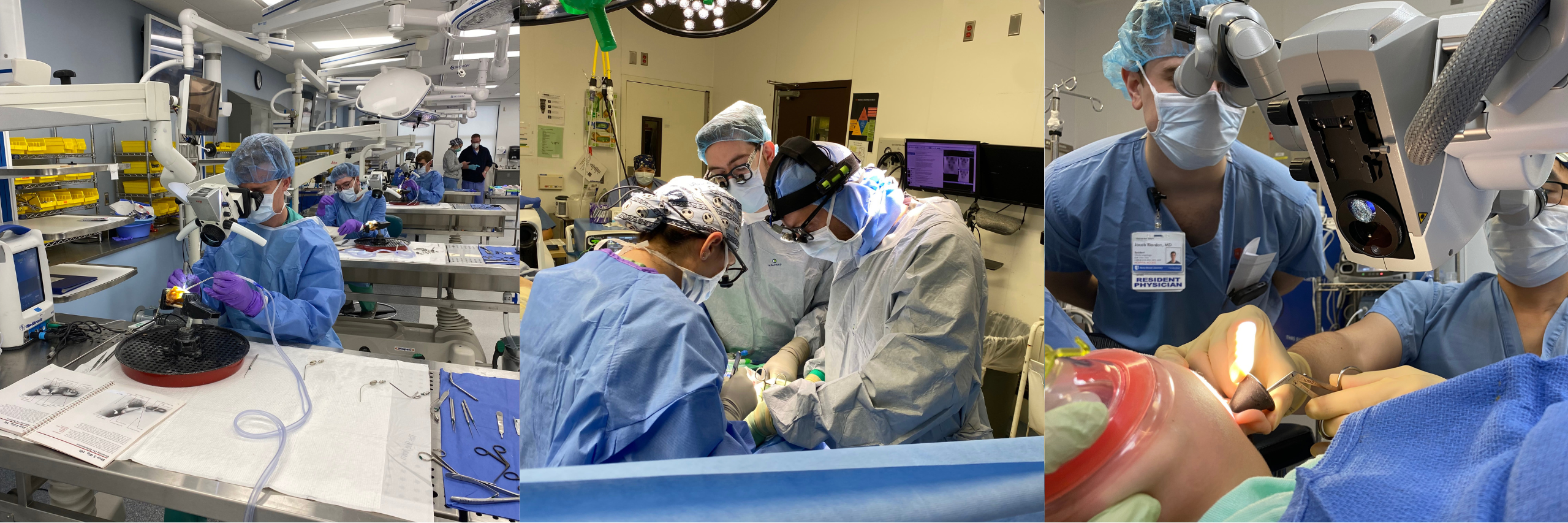Checking out the Area of Otolaryngology: What to Anticipate When You Consult an ENT
Otolaryngology, commonly described as ENT, includes the diagnosis and therapy of nose, throat, and ear conditions. For those experiencing associated issues, consulting an ENT professional can supply quality and relief. Understanding what to expect throughout such examinations is necessary for efficient interaction and treatment. This overview will describe crucial elements of the ENT experience, including common reasons for check outs and the processes associated with medical diagnosis and therapy.

Understanding Otolaryngology: An Overview
Otolaryngology, usually referred to as ENT (Throat, nose, and ear) medicine, is a customized branch of medication that focuses on the medical diagnosis and therapy of conditions affecting these vital locations of the human body. This field encompasses a wide range of problems, consisting of those relevant to hearing, balance, respiratory system function, and speech. Otolaryngologists are educated to take care of both medical and medical therapies, making use of sophisticated techniques and innovations. Their experience expands beyond standard conditions, addressing concerns such as allergies, sinus infections, and hearing loss. Additionally, they play a critical function in the management of head and neck cancers cells, giving thorough treatment customized to private patient demands. On the whole, otolaryngology stays necessary for keeping wellness and top quality of life in afflicted people.
Typical Factors to See an ENT Expert
Many individuals seek the know-how of an ENT expert for a range of factors, mirroring the diverse nature of conditions that impact the throat, ear, and nose. Typical concerns include chronic sinus problems, which often brings about relentless nasal blockage and face discomfort. Allergic reactions and their associated signs and symptoms, such as itching and sneezing, likewise prompt check outs to these experts (ENT Doctor). Hearing loss, whether progressive or sudden, is one more significant factor for consultation. In addition, people might seek evaluation for throat disorders, consisting of relentless hoarseness or ingesting troubles. Sleep apnea, identified by disturbed breathing throughout sleep, is regularly addressed by ENT professionals. Each of these conditions highlights the importance of specialized treatment in handling intricate ENT-related wellness issues
Getting ready for Your ENT Appointment
When planning for an ENT consultation, it is necessary to collect appropriate information and think about any specific problems. Clients must assemble a detailed clinical background, including previous ear, nose, or throat concerns, surgical treatments, and existing medicines. Recording signs-- such as seriousness, period, and frequency-- can provide important insights for the ENT specialist. In addition, people ought to prepare a listing of inquiries they want to ask, making sure that all concerns are attended to throughout the see. Bringing along any appropriate clinical documents or test outcomes can additionally help the ENT in understanding the individual's problem. Individuals need to validate their appointment information, consisting of location, day, and time, to minimize any type of final confusion. Proper preparation can improve the efficiency of the assessment and lead to far better end results.
What to Expect During the Assessment
As the examination begins, the patient can expect to participate in an extensive discussion with the ENT professional concerning their signs and clinical history. The expert will make inquiries regarding the period, regularity, and intensity of signs such as hearing loss, nasal congestion, or sore throat. In addition, the person's previous clinical conditions, medications, and any kind of relevant household background will be assessed, helping the professional in forming a total understanding of the patient's health and wellness. The ENT might additionally inquire about way of life factors, such as direct exposure to irritants or allergens. This open dialogue establishes a structure for the assessment, making certain that the patient's worries are addressed and setting the phase for ent laser any kind of required assessments or referrals for treatment.
Diagnostic Tests and Procedures in Otolaryngology
A series of diagnostic tests and procedures are essential in otolaryngology to properly review and detect conditions impacting the throat, nose, and ear. Typical tests consist of audiometry, which determines hearing function, and tympanometry, analyzing center ear pressure. Nasal endoscopy permits visualization of the nasal passages and sinuses, while laryngoscopy analyzes the throat and singing cords. Imaging methods, such as CT scans and MRIs, offer in-depth sights of head and neck frameworks. Allergic reaction testing may additionally be conducted to identify triggers for sinus or respiratory system issues. These diagnostic tools enable ENT specialists to establish a detailed understanding of people' problems, guaranteeing customized and efficient administration strategies. Correct diagnosis is important for successful treatment end results in otolaryngology.
Treatment Options Supplied by ENT Specialists
ENT experts provide a range of treatment options tailored to address certain conditions affecting the ear, nose, and throat. These therapies vary from conventional approaches, such as medication and way of life adjustments, to more intrusive procedures. For instance, allergies may be handled with antihistamines or immunotherapy, while chronic sinus problems might need nasal corticosteroids or sinus surgical treatment. For hearing click to read loss, ENT experts usually advise hearing aids or medical treatments like cochlear implants. In situations of throat disorders, choices can include speech therapy or surgeries to get rid of obstructions. In addition, they might provide support for managing rest apnea, consisting of the usage of CPAP devices or medical interventions. On the whole, the objective is to boost individuals' top quality of life through customized care and efficient treatment approaches.
When to Look For Follow-Up Treatment With an ENT
When to look for follow-up care with an ENT expert is essential for handling ongoing signs or complications associated to nose, ear, and throat problems, identifying. Patients must consider scheduling a follow-up appointment if signs continue regardless of first treatment, such as chronic ear discomfort, nasal blockage, or throat pain. Modifications in hearing, equilibrium issues, or unusual nasal discharge may also call for more evaluation. Additionally, if a client experiences side effects from prescribed medications or has undergone an operation, follow-up treatment is important to monitor recuperation and resolve any problems. Timely appointments can ensure reliable administration of problems, stop prospective problems, and provide comfort regarding one's wellness. Looking for follow-up care promotes proactive wellness monitoring in otolaryngology.
Often Asked Questions

What Qualifications Should I Search for in an ENT Specialist?
When looking for an ENT specialist, one should try to find board qualification, appropriate experience, and solid person evaluations. Furthermore, effective communication skills and a compassionate technique can greatly enhance the general therapy experience.
How Do I Choose the Right ENT for My Demands?
Selecting the right ENT professional involves assessing their credentials, experience, and client testimonials (ENT). It is important to contemplate their communication design and approach to treatment, guaranteeing they straighten with the individual's certain wellness demands and preferences
Exist Any Threats Related To ENT Procedures?
The threats connected with ENT treatments may include infection, bleeding, anesthesia issues, and prospective damage to bordering frameworks. Patients must discuss these threats with their physician to comprehend specific problems and guarantee informed choices.
Just How Can I Take Care Of Stress And Anxiety Prior To My ENT Visit?
To manage stress and anxiety before a consultation, individuals can exercise deep breathing workouts, imagine favorable results, prepare inquiries beforehand, and seek assistance from pals or family, promoting a sense of peace of mind and peace.
What Should I Do if I Experience Adverse Effects From Therapy?
If negative effects from therapy occur, the person must immediately report them to their doctor. Changes to treatment or extra treatments may be necessary to assure safety and security and efficiency in handling their problem - Hearing. As the appointment begins, the individual can expect to engage in a detailed discussion with the ENT expert about their signs and clinical background. These diagnostic tools make it possible for ENT experts to develop a comprehensive understanding of patients' problems, making certain customized and efficient monitoring plans. ENT professionals provide a selection of therapy options customized to resolve specific problems influencing the nose, ear, and throat. When looking for an ENT specialist, one ought Discover More Here to look for board qualification, relevant experience, and strong patient evaluations. Selecting the ideal ENT professional includes examining their credentials, experience, and patient evaluations